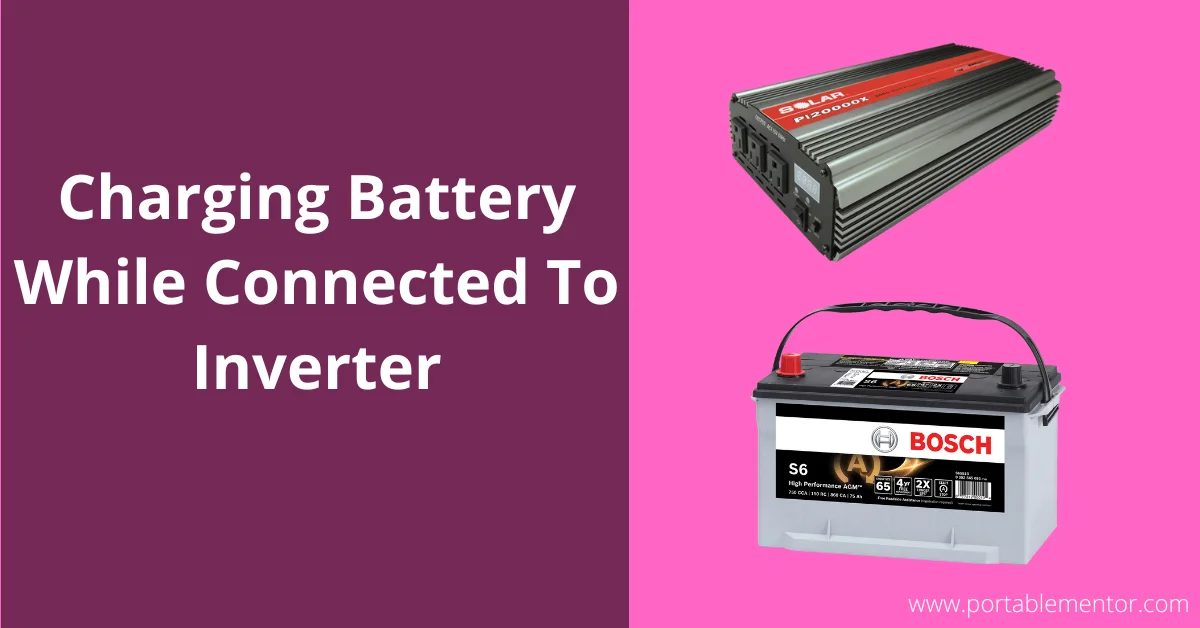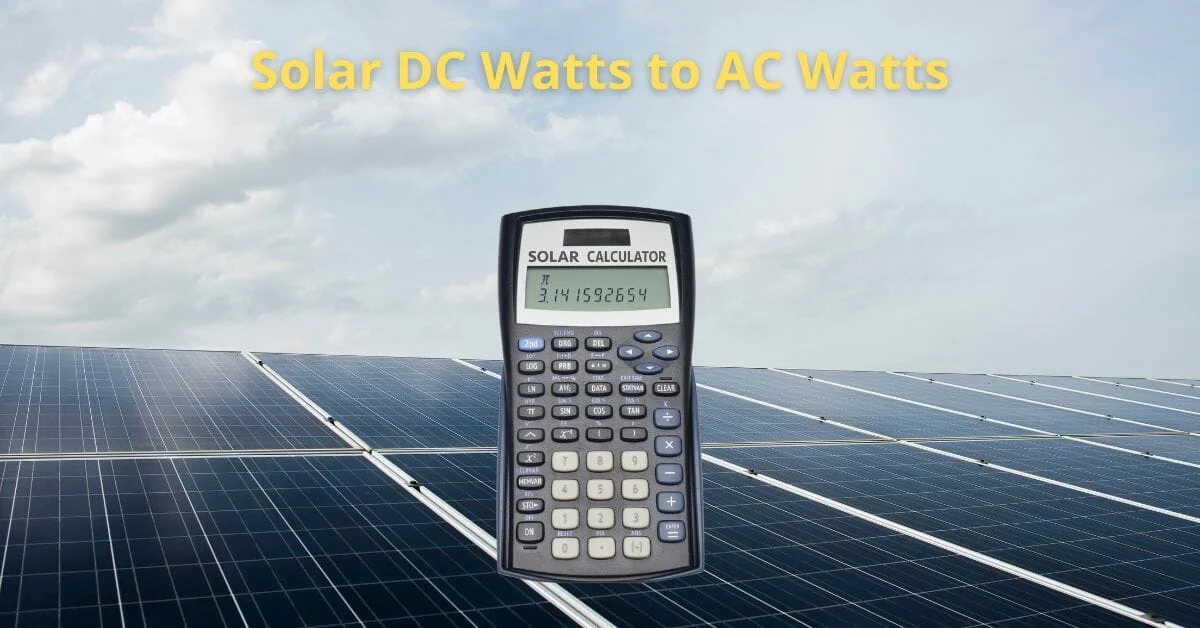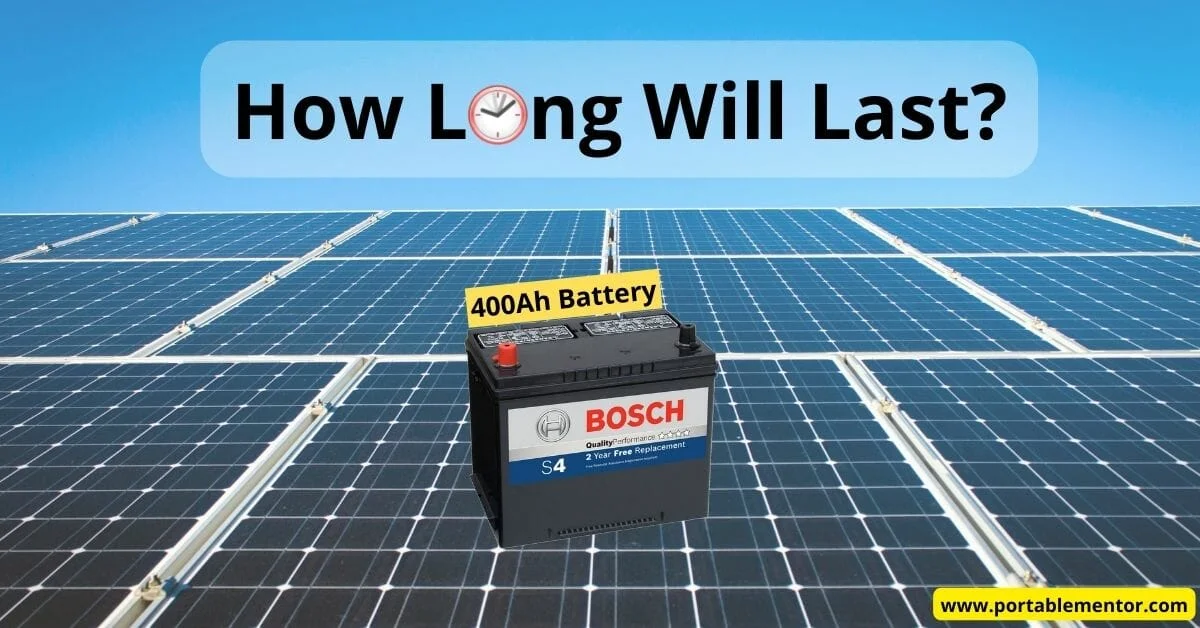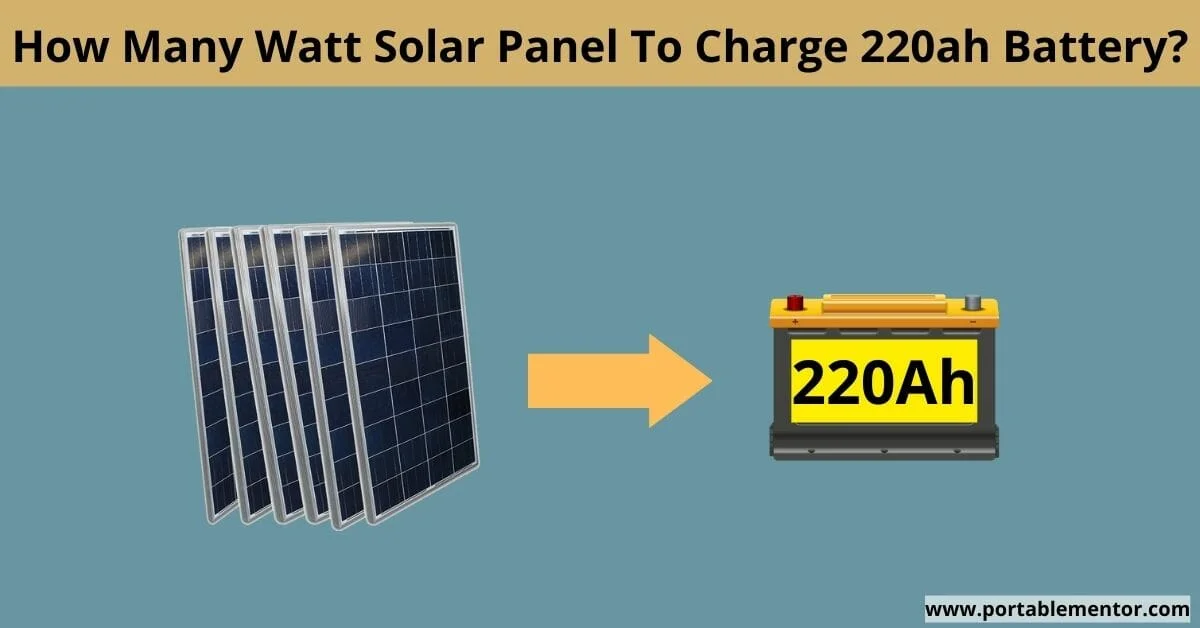
Charging your deep cycle or car battery while connected to an inverter can help you to run your appliances while the battery is getting power from the solar panels or charging
So in this blog post, I'll explain about charging your battery when it's connected to an inverter and what to keep in mind before doing this method, and much more...
Can I charge a battery while it's connected to an inverter?
in short, the answer is Yes, you can charge a battery while using an inverter. but make sure that the load should be lower than what solar panels are producing according to weather conditions.
connecting an inverter with the battery will not do the harm to your battery while it's charging unless the battery is about to fully drained or it has reached its discharged limit like a lead-acid battery which only has a DOD limit of 50%
Is it safe?
in short, yes it is safe to charge your battery while the inverter is connected. but the only thing to keep in mind is that the load connected with the inverter should be even to the input of DC power to the battery from the solar panels
As long as you're not consuming more from the battery than what the solar panels are producing it's safe to use but make sure that you're using a charge controller between solar panels and the battery
What to keep in mind?
There are a few points to keep in mind before charging your batteries while running appliances
Input & Output Difference
let's suppose you have a 100Ah AGM battery and you have connected the solar panels with it but you are also running your AC appliances with the help of a solar inverter
as we know that it's not recommended to discharge your AGM battery below 50% which will decrease the capacity of the battery. so if you have a 100w solar panel connected with your battery and they are producing 100w if the weather conditions are ideal and you're drawing 500 watts from the battery
But the battery is left with 50% charge and solar panels are producing 100 watts and you're consuming 500 watts from the battery in this case the battery charge will go below 50% which can damage the battery
Choose The Right Size Inverter
Choosing a right size inverter according to the input power like how much power your solar panels are producing and at what rate the battery is being charged
e.g if your solar panels are producing 100w so use an inverter that can only draw 100 watts so if in case you have connected a large watt appliance it will automatically switch off
A rule of thumb is to match the output of solar panels and the output of the inverter
Keep the inverter load as low as you can
if you're using the same watts coming from the solar panel to run the appliances with the help of an inverter then the battery will remain the same.
so to charge your battery keep the output load from the inverter lower than the input to the battery
Should You Do This?
if you need instant power then this method is recommended but there are a few things to keep in mind before doing this
if you have a large solar array then you should and definitely can do this which will give you instant power to run your appliances as solar panels stars produce power
but what if you have a small solar array like 400w which i have then the only thing to keep in mind is that if you're using an AGM or lead-acid battery then make sure that the battery capacity stays above the discharging limit
and if you're using lithium-ion batteries then you can blindly use this method. When the battery will be fully discharged it will automatically turn off the inverter but make sure that you're using a charge controller between solar panels and the battery
This method will be more beneficial if you have a large solar panel system and small-sized batteries e.g your solar panel can produce 1500 watts of DC power in a day but you have a small size battery like 100Ah which can only hold 1200 watts
instead of wasting solar power, you can run your appliances while solar panels are producing power
Realed FAQ's
Yes, you can charge a battery while running load or connected to the inverter but make sure that the load wattage should be less than what the solar panels are producing or you'll not be able to charge the battery
Using a solar battery while charging is perfectly safe if you're not discharging your battery then it's limited DOD or the load and output from solar panels should be equal
Final Words
Connecting a load with a battery while it getting charged from solar panels will provide you the instant power and this will be beneficial if you have large solar panels with a small size battery


